- Home
- Julia Kent
Shopping for a Billionaire's Fiancee Page 6
Shopping for a Billionaire's Fiancee Read online
Page 6
See? Competitive.
“You don’t have to marry her if you don’t want to,” Dad grouses.
That makes me sit up more.
“What? No.” I snap, still feeling a bit off. “Of course I want to marry her. What the hell’s wrong with you, Dad?” I spit out.
“I, unlike you, am upright and conscious.”
“Two more drinks and that won’t be true, Dad.”
He just shrugs, drains his glass, and signals the server for another round. He’s a walking self-fulfilling prophecy with a bank account big enough to make himself immune to consequences.
Suddenly, I can’t be here. Can’t keep doing this. Watching Dad be a lech, talking with Andrew about my future wedding like it’s a cage, I just...I’m done. I need someone who can listen to me without judgment. Without sarcasm.
Without looking at everything in the room that has a vagina like it’s eye candy.
I stand up, head clear now. “Gotta go.”
“Where?” Dad asks, but he’s not really paying attention. His eyes are using x-ray vision to see through the server’s skirt.
“An appointment with someone very important.”
CHAPTER EIGHT
The drive from Dad’s hotel out into the suburbs is frustrating, filled with a traffic jam caused by the flood of college students going back to school. Car after car overloaded with suitcases, pillows, household goods and lamps clutters the route I normally take.
Finally, the off-ramp clears and I am on the side road, winding through a small town center to get to my destination. At a red light, a car to my right honks, a light tap that indicates someone’s trying to get your attention. I look.
It’s Marie.
She waves wildly, a big smile on her face. It’s infectious. I smile back and wave, wondering if this means I really have forgiven her. What’s she doing in this town? It’s not one of her normal haunts.
A flurry of hard honks follows. I look up and realize my light’s turned green. Gunning the engine, I take off, feeling a bit foolish, but the smile lingers.
The long, twisting country road outside of Concord always fills me with a sense of foreboding. A sick chunk of concrete settles into my stomach, and it’s not because the New Zealand project looks like it’s one of my few failures.
It’s because I remember driving down this very road eleven years ago to bury my mother. Tree-lined and lush with the bloom of late August, the memorial park could be a town center with wide walking paths, save for the gravestones sprinkled everywhere. My throat tightens as I maneuver the SUV through the iron gates to the sprawling cemetery where my mother’s family is buried.
I park and walk to a small hill, an enormous beech tree covering half of it, the tree like an elephant’s foot, only ten times greater in diameter. Mom’s stone is under the shade of the tree, though not directly under it.
Grey marble. A simple message. Her name, her birth and death dates, and an inscription:
Loving wife to James, mother to Terrance, Declan and Andrew
More than ten years ago I rode in a black limousine behind an oversized black hearse that carried my mother’s body. Dad had delayed the funeral until Andrew was out of the hospital, and Terry had come home from college.
You couldn’t talk to Dad. His secretary fielded questions from the three of us. An impenetrable fortress closed around our father, and he was all surface, no depths. At the time, he seemed so shallow, so insincere, like he was playing the part of the wealthy, grieving widower and we were just props. The three boys. Elena’s beloved sons.
If anyone got us through the emotional nightmare of mom’s death, the credit really does go to Dad’s secretary.
Grace.
Mom and Dad were only children, so we had no passel of aunts and uncles to descend and help. Mom’s father was dead, and her mother was in a nursing home back near Buffalo, New York. Dad had broken off all contact with his own parents years ago for reasons he still won’t share. About five years back I learned they were dead.
That big, happy family wasn’t us. Never had been. Mom was the glue.
When you lose the thing that keeps you together, everything falls apart.
Grace’s arms are the ones I remember reaching around me as I stood for hours after the burial, refusing to get in the limo, incurring the hissed wrath of Dad but not giving a shit. Andrew and Terry had complied with Dad’s order to get in the fucking car or else.
I chose or else.
No one except Dad cared that I stayed. They all went back in a long line of more than one hundred cars under police escort, headed for the Farmington Country Club for the sedate, tasteful gathering where appetizers would be served and wine and spirits would flow and we’d all have some closure.
That was Dad’s word.
Closure.
I’d stood staring at the mounded dirt over the hole in the world where someone had dropped my mom. Her body wasn’t just in there. My future was, too. Leaving her wasn’t an option. Once I walked away, once I got into that black machine and drove off and left her like everyone else, it sealed the fate of truth for me.
I’d killed her.
Dad had said that to me the day we’d gone to the hospital, the day he learned her throat had closed, swollen so far that no amount of love or drugs could pry it open. Andrew was hanging on in another room but Mom was dead.
Dead.
All we have are memories of the dead. No more kisses. No more arguments. No more forgiveness.
You can’t forgive a corpse.
Or, in Dad’s case, a son.
A wave of shame covers my body, a feeling I haven’t experienced in eleven years. Suddenly, Marie seems wise. Maybe she has a point. When you love someone, part of that loving involves digging deep inside yourself to a truth that is only yours. Whatever hurt and pain and grief resides inside you, that truth needs to be reached. Pulled out. Held up to the light of day and reconciled with the love you feel for someone who you feel did you wrong.
I was barely eighteen. In an impossible Catch-22. Saving my brother meant losing my mom. Saving my mom meant losing my brother and defying her panicked plea.
No way out.
Things fall apart. The centre cannot hold. Mere anarchy is loosed upon the world....
Mom helped me deconstruct that Yeats poem right before she died. It’s about WWI and the terrible ravage of a war that changed all the rules of brutality. All the rules of what was expected when things fall apart.
The ceremony of innocence is drowned...
How could Dad blame me? How could he not? I suppose I understand and yet I don’t. My gut twists every time I think about those wretched moments when she and Andrew were stung and the weight of the world was placed in my hands. Every time Dad makes a snide comment.
Every time a bee floats past Shannon.
Am I crazy to marry a woman who could die the same way my other did? I must be. A little. Two EpiPens can’t hold back the danger and the risk. My wealth means I can buy all the EpiPens in the world and sprinkle them liberally in every corner of every place where Shannon and our future children will be.
And it still might not be enough.
Love doesn’t care about randomness. Love embodies it, in fact. Embraces it. Knows that the random is the vehicle for spreading joy.
And pain.
So much pain.
Surely some revelation is at hand...
My father focused on the pain, never the joy. I followed in his footsteps. That serendipitous moment in the bagel store. Finding Shannon with her hand down the toilet. Having her walk into that meeting at my office and taking her to dinner...
Falling for her.
Loving her. Loving her so much I’ll risk letting my heart fall apart for the profound honor of her willingness to be mine. And to love me back.
The joy of being with her outweighs the potential pain. It’s a gamble of the heart that I’ll just have to take, hoping the odds are on my side.
“Things fall ap
art. The centre cannot hold. Mere anarchy is loosed upon the world,” I say aloud to my mom.
God, I love Shannon so fucking much I’m standing here in front of a gravestone muttering Yeats to a dead woman.
I’ve brought Shannon here before to “introduce” her and Mom, and we visited on Mom’s birthday and her death day. “Death Day” is one of the most macabre terms ever invented, but there isn’t a better term. Death Day it is. Shannon’s watched me cry here, seen me rage here, and we’ve also enjoyed a glass of Mom’s favorite wine while sitting on the quilt my grandmother knitted for Mom when she was pregnant with Terry.
Mom’s had a reasonable chance, to the extent that one can while dead, to form an opinion of Shannon.
It’s time to hear what the woman who owns the ring thinks.
Am I little crazy to be doing this? That’s a rhetorical question, right? Because no. Fuck anyone who thinks so. When you decide to propose to someone you talk to your parents, their parents, your siblings and friends and your secretary and the mailman and the barista where you get your macchiatos, right?
Why wouldn’t I have a lengthy conversation with a gravestone, too?
Loving wife to James, mother to Terrance, Declan and Andrew
How does a life sum up in one sentence carved in stone? She was blonde sweetness and light. Firm disciplinarian and kisser of boo boos. She taught us how to “read” an original painting, and why white space is important in art and life. Elena McCormick found a gentle peace in handwriting letters on fine stationery. She loved to walk in creeks barefoot and jump into the ocean before sunrise, freezing and laughing as Dad watched from the balcony of the beach house, cup of coffee in hand, shaking his head at her antics.
She was the sigh as she kissed me goodnight when I was little. The brush of hair against my cheek when she forced a hug from my teenage loner self. The scent of expensive perfume as she walked through the room on her way to a black tie fundraising dinner with Dad. The gleeful eyes as I brought my first girlfriend home to meet her.
The only person in the world who told me that being Declan was my job. That finding out who I am was more important than being who everyone else wanted me to be.
Mom would have really, really loved Shannon. I came here a few weeks after I met Shannon and told the story of how we met. If she were alive, Mom would have been horrified, then laughed so hard she’d have waved her hands in front of her eyes, begging for mercy because her mascara was running.
She’d have insisted I bring Shannon home to meet her, and the two would have hit it off. Mom may have been Boston blue blood, but she was authentic, too. Polished and refined, but genuine.
Shannon is anything but polished and refined. In fact, she’s the very definition of rough around the edges. But she’s real and authentic, raw and mine—and I am so fucking angry that Mom never got the chance to see how happy we are.
Life really, really isn’t fair.
The only thing I can think to do right now is punch the tree. Eleven years ago, after all the cars were gone, the last red taillights rounding the corner to exit the cemetery, that’s exactly what I did.
Punched the tree until my knuckles bled so much they dyed the tree bark. Grace had stopped me, hugged me, and just held me, sobbing.
My hand must have been in better shape when I was eighteen, because one sickening thud and I’m all punched out, with bones that are screaming at me in glorious pain.
“Declan?” says a woman’s voice, older and smoother than Shannon’s. A light breeze tickles the leaves on the trees and I choke up, spooked.
“Mom?” I say, jumping like a ghost just appeared, my voice cracking like I’m going through puberty.
Her gravestone remains in place and I think I’m losing it. Hearing voices in a cemetery must be a form of mental illness, even if grief can make you want to believe they’re not really gone.
I’ve had eleven years, though. I know damn well she’s gone. All too well. Is this what unraveling feels like? Maybe I need to bag the whole proposal, because I don’t want to saddle Shannon with a husband who’s losing it.
Husband. I’m going to be her husband. The word hits me like a stone between the eyes and I look at Mom’s grave. Dad was her husband. Mom was the love of his life.
And she died.
All because of me.
“No, honey. It’s Marie.” I whip around and there she is, standing back, hands clasped in front of her and tentative. She reminds me of how Grace looked after everyone left the burial, just waiting in the wings until I was ready to leave, holding my bloody knuckles, arms around me as I stumbled to her car.
“Marie?” There are a wide variety of people I would expect to run into at my mother’s gravestone, but Marie doesn’t make the shortlist.
“I saw you in town and texted to see if you wanted to have coffee. Then I followed you.”
I clear my throat. She throws her hands up, palms facing me.
“I know! I know! Boundaries,” she says with a sad smile, looking at Mom’s gravestone. “I was just worried that someone had died.”
I raise one eyebrow. “We are in a cemetery.”
“I meant someone new had died. That something had gone wrong.” Her eyebrows meet in that pitying, older way that Grace has perfected. Marie has been taking lessons from someone, or else it’s a look that comes with menopause.
“No. No one new has died. Just my mom.” I look sadly at the gravestone.
Things fall apart.
So do people.
“Oh, Declan. It’s never ‘just’ when it comes to losing your mother. And you were so young when it happened.”
My mouth tightens in what is supposed to be a bitter smile but just feels like anger. “It’s been eleven years. I’m over it.”
“You never get over losing a parent.”
My eyes fill up with what I assume is an allergic reaction to something in this damn memorial park, because I don’t cry. Men don’t cry. That’s a McCormick family rule, too. We drink, we fuck, we excel, we dominate, but we don’t cry.
Marie moves her neck, looking up at me to catch my eye. Would my mom have those crow’s feet, too? She didn’t eleven years ago, but Marie has the advantage of living these eleven years. Of aging. Of mothering her children and being alive. The years wear a person down and leave an imprint on their face, their skin, their body, their heart.
But the alternative is so much worse.
“Declan? Why are you here?”
“Can’t a—” My throat is clogged and I try again. Damn allergies. Apparently, I’m developing them suddenly here. “Can’t a guy visit his dead mom once in a while without needing a reason?”
She nods. “Fair enough.” We stand in quiet, a lawn mower starting in the distance. The buzzing sounds just enough like a wasp that I flinch.
Marie’s eyes are alert and clever, watching me. But she doesn’t say a word.
“You look like James, but there’s something about you that must come from your mother,” she finally says. “Andrew is the spitting image of your father. I’ve never met your oldest brother. But you...” She smiles kindly and reaches up to brush a piece of hair out of my eyes. The gesture is unnerving. Motherly.
“It’s the hair, ironically,” I explain, pulling back a few inches so she can’t touch me.
Marie’s eyes flit between my mom’s grave and me. She opens her mouth, lips parting, then snaps them shut. Once, twice, three times. Whatever she’s struggling to say, she’s going through monumental effort to do it, and I’m really not looking forward to it.
“Tell me about that day,” she says gently.
My eyes close and my shoulders drop. I don’t have to ask her what she means. The band of steel that snaps shut like a trap door when this subject comes up isn’t there. Shannon pried it open shortly after we got together for good and I told her the whole story.
She’s the only person, other than medical authorities, who has ever heard it. Dad didn’t want to know. Even Andrew has never
asked. He knows what he remembers, but not what I experienced after he passed out.
And now, Marie.
“There’s not much to tell. We went to one of Andrew’s soccer games. It was May, the day before my senior prom. He was a sophomore and I was a senior and Mom was filled with the craziness of planning my graduation party. She was lecturing me on how to treat my date because prom is every girl’s dream, and Andrew was teasing me about making sure I got a nice hotel room so I could deflower her,” I say, the words slow, my mouth filled with cotton and regret.
Marie makes a small noise of encouragement.
I can’t help but grin at the memory. “Yeah. Mom loved that. Smacked him upside the head and told him he was being vulgar.”
I sigh. The memory isn’t just a series of images in my head, retrieved to repeat and tell. It’s like they’re living in my mind, like I can smell the freshly-cut grass around the soccer fields, hear the ref blowing the whistle, the shrill sound cutting through my thoughts.
“Mom wanted to go for a walk while Andrew was between games. She loved the trails in the park. There was this creek that we played in as kids. Lots of rocks and little pools. The perfect place to bring rowdy little boys for an afternoon.” My voice hitches on the last word. I imagine me and Shannon taking Jeffrey and Tyler there and make a mental note to mention it to her.
I think it might be good to revisit there on a happy note with little boys who can play and throw rocks and get muddy.
I’ve never been back.
“And we were walking near the water when a swarm flew by. It just—pure randomness. You ever see a wasp or bee swarm?”
Marie shakes her head.
“It’s marvelous.” I can hear the wonder in my own voice. “Frightening and powerful. Hypnotic. At first you have no idea what it is. The damn thing looked like a ball of darkness in the sky, moving impossibly through space. My eyes kept trying to pattern match and turn it into birds. And then, as it passed overhead, we realized what it was.”
“Mom shouted and ducked. Andrew just stood there, stunned, like me. And then he screamed, a high-pitched sound like a little kid. Again.” I’m reliving it now, eyes stuck on the word loving on Mom’s gravestone.

 Her First Billionaire
Her First Billionaire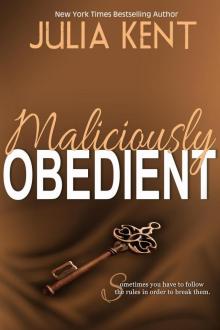 Maliciously Obedient
Maliciously Obedient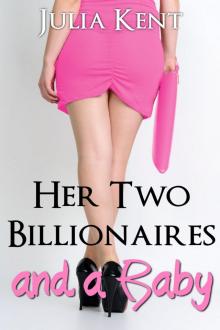 Her Two Billionaires and a Baby
Her Two Billionaires and a Baby Her Second Billionaire
Her Second Billionaire Random Acts of Crazy
Random Acts of Crazy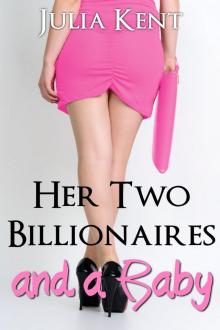 Her Two Billionaires
Her Two Billionaires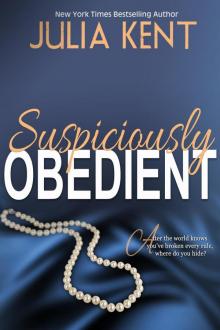 Suspiciously Obedient
Suspiciously Obedient Random Acts of Trust
Random Acts of Trust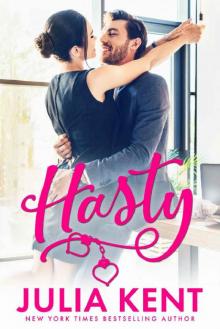 Hasty (Do-Over Book 4)
Hasty (Do-Over Book 4)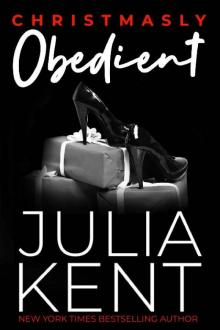 Christmasly Obedient: Small Town Holiday Romantic Comedy Romance
Christmasly Obedient: Small Town Holiday Romantic Comedy Romance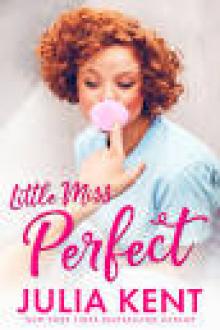 Little Miss Perfect
Little Miss Perfect Feisty
Feisty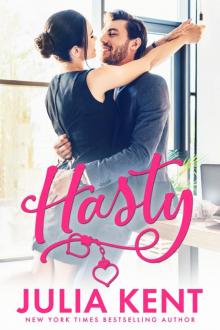 Hasty
Hasty Fluffy
Fluffy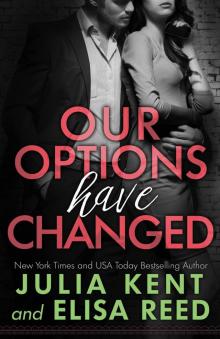 Our Options Have Changed: On Hold Series Book #1
Our Options Have Changed: On Hold Series Book #1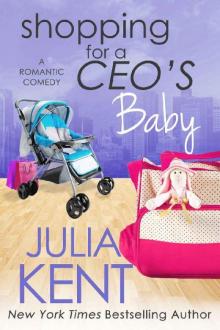 Shopping for a CEO's Baby (Shopping for a Billionaire Series Book 16)
Shopping for a CEO's Baby (Shopping for a Billionaire Series Book 16) Perky
Perky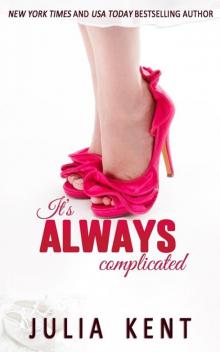 It's Always Complicated (Her Billionaires Book 4)
It's Always Complicated (Her Billionaires Book 4)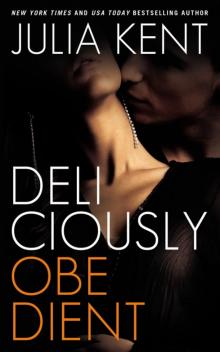 Deliciously Obedient
Deliciously Obedient Before Her Billionaires
Before Her Billionaires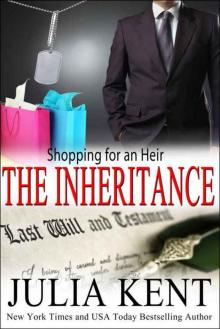 Shopping for an Heir
Shopping for an Heir Feisty (The Do-Over Series Book 3)
Feisty (The Do-Over Series Book 3) Shopping for a Billionaire 1
Shopping for a Billionaire 1 Random on Tour: Las Vegas
Random on Tour: Las Vegas Random Acts of Fantasy
Random Acts of Fantasy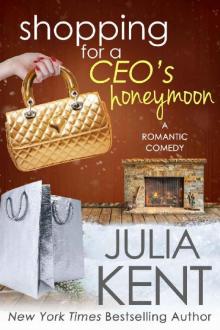 Shopping for a CEO's Honeymoon
Shopping for a CEO's Honeymoon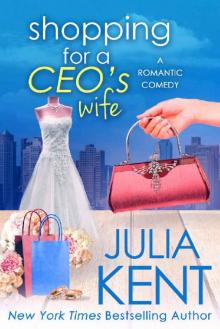 Shopping for a CEO's Wife (Shopping for a Billionaire Book 12)
Shopping for a CEO's Wife (Shopping for a Billionaire Book 12)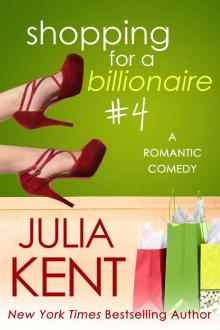 Shopping for a Billionaire 4
Shopping for a Billionaire 4 Random Acts of Love (Random #5)
Random Acts of Love (Random #5) Random Acts of Fantasy (Random Series #3, Invitation to Eden)
Random Acts of Fantasy (Random Series #3, Invitation to Eden) Randomly Ever After
Randomly Ever After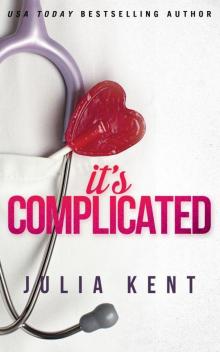 It's Complicated
It's Complicated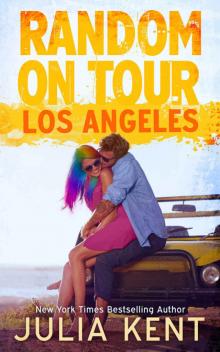 Random on Tour: Los Angeles (Random Series #7)
Random on Tour: Los Angeles (Random Series #7)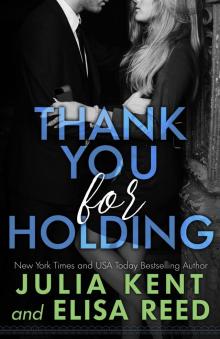 Thank You For Holding: On Hold Series Book #2
Thank You For Holding: On Hold Series Book #2 Merry Random Christmas
Merry Random Christmas Shopping for a Billionaire's Honeymoon
Shopping for a Billionaire's Honeymoon Shopping for a Billionaire's Fiancee
Shopping for a Billionaire's Fiancee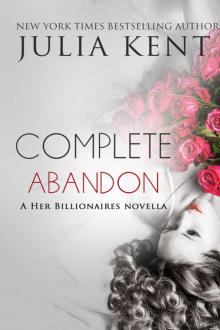 Complete Abandon
Complete Abandon Shopping for a Billionaire 2
Shopping for a Billionaire 2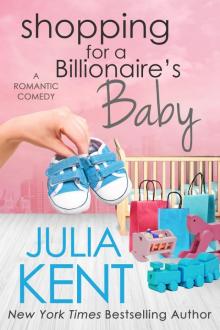 Shopping for a Billionaire’s Baby
Shopping for a Billionaire’s Baby Shopping for a Billionaire 3
Shopping for a Billionaire 3 Shopping for a CEO's Fiancee
Shopping for a CEO's Fiancee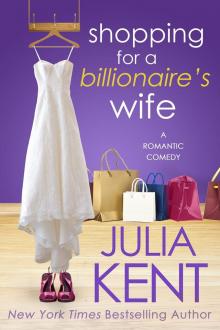 Shopping for a Billionaire's Wife
Shopping for a Billionaire's Wife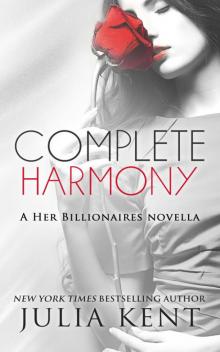 Complete Harmony
Complete Harmony Billionaire Romance Boxed Set (9 Book Bundle)
Billionaire Romance Boxed Set (9 Book Bundle) Shopping for a CEO (Shopping for a Billionaire Series Book 7)
Shopping for a CEO (Shopping for a Billionaire Series Book 7) Random Acts of Love (Random Series #5)
Random Acts of Love (Random Series #5) Random Acts of Hope
Random Acts of Hope